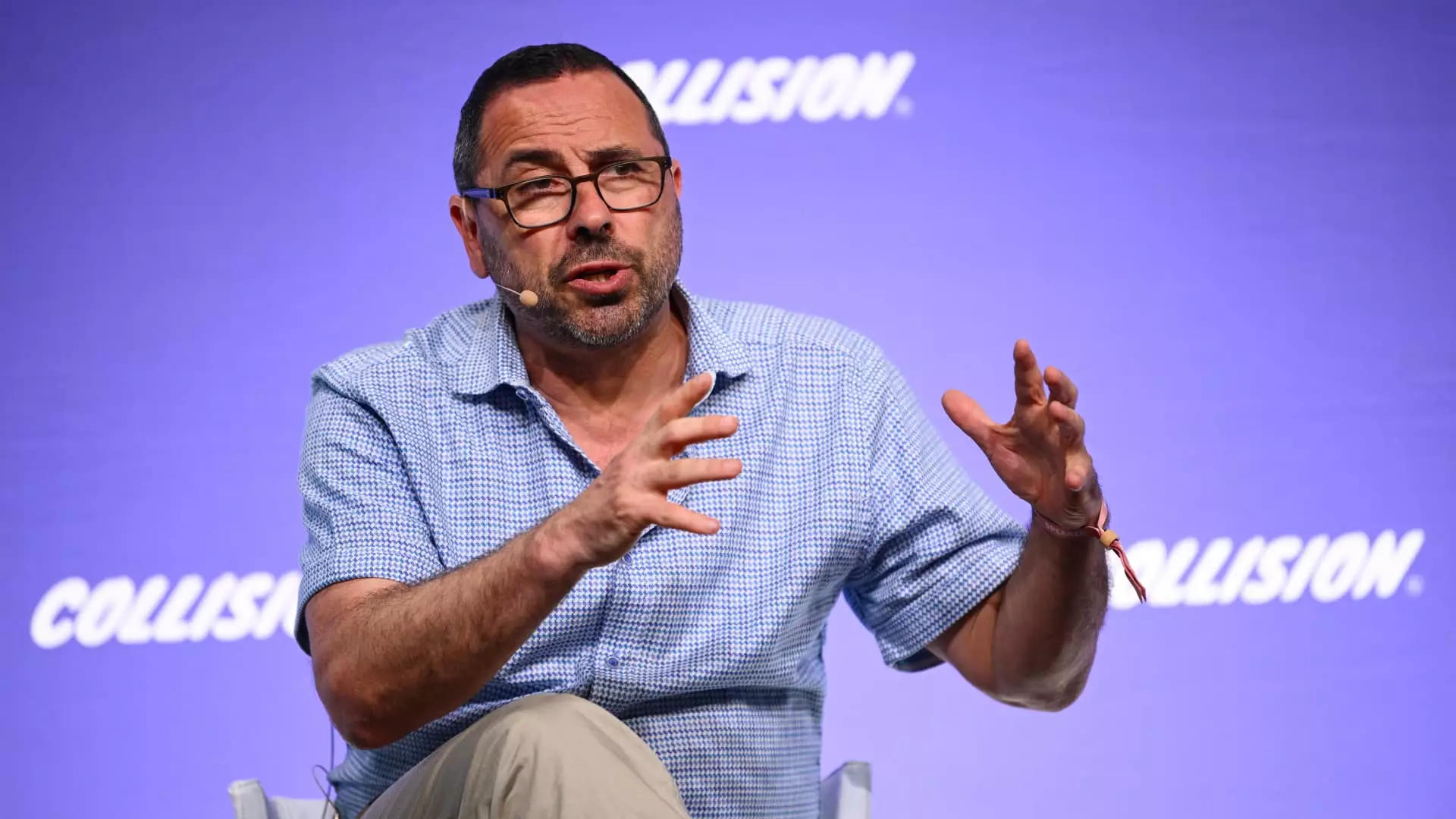Cerebras, a semiconductor company that specializes in artificial intelligence (AI) infrastructure, has set its sights on becoming the first significant venture-backed technology firm to enter the public sphere in the United States since April of this year. With the staggering growth of Nvidia, currently valued at $3.3 trillion, the market is ablaze with enthusiasm for innovative technologies, particularly in AI. Cerebras aims to leverage this momentum; however, its journey to an initial public offering (IPO) is fraught with complexities and risks that could undermine its efforts.
Founded in 2016 and headquartered in Sunnyvale, California, Cerebras has made significant strides since its inception, proudly unveiling its first processor three years later. The company claims that its latest chip outperforms Nvidia’s graphics processing units, particularly in training large language models. In a remarkable leap, Cerebras reported tripled sales of $78.7 million in 2023. With predictions of an even rosier future, the company forecasts its revenue soared to $136.4 million in the first half of 2024, buoyed by a commitment to purchase $1.43 billion worth of systems and services from a key client, G42.
Despite these optimistic projections, Cerebras grapples with a precarious reliance on a single major customer—G42, a company based in Abu Dhabi, UAE, which accounted for a staggering 87% of Cerebras’ revenue in the first half of the year. This type of concentration poses significant risks, as the company’s financial stability is heavily tethered to one entity. Cerebras has pledged to expand its client base, aiming to tap into sectors like healthcare, biotechnology, and pharmaceuticals where their AI capabilities can mitigate computational bottlenecks.
The G42 Factor: Benefits or Bane?
G42’s backing extends beyond mere commerce; it is also an investor in Cerebras. Plans are underway for G42 to purchase a $335 million stake, positioning it as the prominent shareholder, contingent on Treasury Department clearance. The concerns raised about G42’s ties to Chinese entities, along with U.S. national security considerations, create another layer of complexity for Cerebras. The company asserts it does not believe CFIUS (Committee on Foreign Investment in the U.S.) has jurisdiction over G42’s acquisition of non-voting securities. However, the uncertainty surrounding potential scrutiny from CFIUS looms large, quelling investor enthusiasm even further.
Concerns about Cerebras’ IPO prospects are amplified by its customer concentration and the notable absence of top-tier tech banks, such as Goldman Sachs and Morgan Stanley, from the list of underwriting firms. Traditionally, these banks assume leadership roles in underwriting notable tech IPOs, but their absence raises questions regarding the deal’s perceived viability among investors. Instead, the deal is being spearheaded by Citigroup and Barclays, neither of which hold the same weight as their more renowned counterparts in capital markets.
Additionally, Cerebras faces scrutiny from investors regarding the company’s past financial behavior. CEO Andrew Feldman’s prior guilty plea related to circumventing accounting controls raises a red flag, suggesting potential governance risks. The perception of risk surrounding management and financial dependencies will undoubtedly play a pivotal role in shaping investor sentiment.
The AI Chip Boom: A Double-Edged Sword
While Detroit’s automotive industry may be beset by challenges, the flame of the AI chip market burns bright. With Nvidia controlling approximately 95% of the market share for AI training and inference chips, Cerebras finds itself in a pivotal position to capitalize on this burgeoning sector. Venture capitalists, including Peter Thiel, have noted that Nvidia currently dominates profits in the AI space, further entrenching the idea that every other firm is collectively incurring losses.
Cerebras’ journey is emblematic of a larger narrative within the technology industry, where innovation abounds, but companies must consistently navigate funding hurdles and market skepticism. Even amid these challenges, retail investors like Jim Fitch express optimism about Cerebras’ prospects, drawn to the technological promise embodied by their flagship product, the WSE-3 chip, rumored to be “the fastest AI processor on Earth.”
Cerebras stands at a crossroads as it aims for its IPO amidst an electrifying backdrop of AI advancements. The juxtaposition of soaring revenue against the specter of customer concentration and potential regulatory scrutiny makes the company’s future uncertain. However, the allure of groundbreaking technology combined with niche market opportunities could position Cerebras favorably if it successfully mitigates risks and wins over skeptical investors. Thus, while excitement surrounding AI chips offers a glimmer of hope, the complexities intrinsic to the Cerebras narrative demand cautious observation as it navigates the choppy waters of IPO aspirations.

